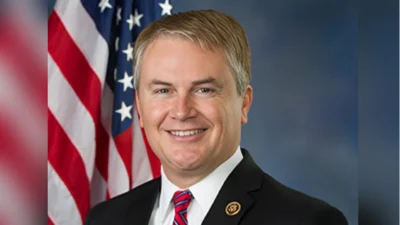I would like to focus our discussion today on the opportunities and the challenges in the Trans-Pacific Partnership (TPP) negotiations, and on how more intensive congressional involvement at this stage of the negotiations is essential.
I. The Status Quo of the Global Economy in Unacceptable
We find ourselves in the mist of the largest multi-lateral trade negotiation since the Doha Round faltered. Between TPP and TTIP the negotiations involve 60 percent of the world’s economy.
These negotiations occur against a backdrop of deep concern over the status quo of globalization and with new issues covering the breadth of American life thrust into the middle of them.
No matter where you stand in the debate over trade and globalization all should agree that the status quo is unacceptable. The status quo is low tariffs in our market with imports - often traded unfairly - causing job loss and contributing to income inequality. The status quo is markets closed to U.S. goods and services through tariffs and non tariff barriers and currency imbalances contributing to huge trade deficits. To make matters worse, many of our trading partners today are negotiating preferential trade agreements with one another that do not include the United States. That means that our exporters could face higher tariffs in those countries than other countries’ exporters. And, the status quo is exemplified by the Rana Plaza disaster in Bangladesh where workers with no rights in the workplace sacrificed their lives on the job.
TPP provides us with an important opportunity to change the status quo and to improve the way the global economy works. If done right, TPP can help level the playing field, to better ensure two-way trade, strengthen the rules of competition, and reflect our values.
The TPP opportunities are real. For example, U.S. dairy producers see an opportunity to remove Canadian tariffs in the range of 250 to 300%, and non-tariff barriers, which have survived two previous U.S.-Canada trade agreements. U.S. auto producers see an opportunity to remove Malaysian tariffs of up to 35% and nontariff measures that significantly raise the cost of American cars sold there. And U.S. credit card companies see an opportunity to eliminate a range of barriers to the provision of payment services, from policies promoting domestic monopolies to forced localization.
TPP also gives us an opportunity to correct the NAFTA flaws on labor and environmental standards when it comes to Mexico and Canada. For the first time Mexico would be bound by enforceable international labor standards that we were calling for twenty years ago and was at the core of my opposition to NAFTA. TPP gives us an opportunity to help ensure that that tragedies like those in Bangladesh do not occur and that workers throughout the Asian-Pacific region have their rights respected.
The challenges are also real. The 12 trading partners include Japan, the third largest economy in the world with an export-dependent and notoriously closed market. The Korea agreement was hard - and remains hard with a number of disturbing implementation issues outstanding, and in some cases growing. Japan will be harder. We have never negotiated a free trade agreement with an economy as large as Japan’s. The negotiations also include Vietnam, a communist country with a very poor record on labor rights and the rule of law. We have also never negotiated a free trade agreement directly with a communist country. The Colombia agreement was hard - and remains hard with a deeply troubling record of compliance with the Labor Action Plan. Vietnam will be harder.
Within this framework of challenges and opportunities the present focus of Congress must be the substance of TPP.
II. The Need for Structured and Meaningful Involvement of Congress and Increased Transparency
There can only be one negotiator, but those negotiations must be built on a strong foundation with the Congress that has to approve the final product. With TPP negotiations too far along for Congress to set the initial terms or negotiating objectives, we must now join in a full partnership.
USTR has spent a great deal of time on the Hill and with stakeholders, in one-on-one and small group meetings. I believe that we must now accelerate those efforts so that through more consistent and broad-based participation we can both press and support our negotiators. We need a structure. We need responsibility, accountability, and ownership.
Because TPP addresses a broad range of policy areas, more Members of Congress must play a key role - and Congress as a whole must play a greater role - in TPP. We need to involve the Members of our committees with jurisdiction over trade, but also Members of other committees that have expertise with the issues under negotiations, and other Members also have important roles to play.
And stakeholders and the public also need to be better informed and more involved. Ambassador Froman recently took one important step in that direction by establishing a Public Interest Trade Advisory Committee and by indicating greater openness to including worker representatives and more diverse viewpoints on the sectoral advisory committees. These steps should be implemented immediately to help ensure that our TPP negotiators are pursuing the right objectives.
But we need to do more to increase transparency with respect to the public, our outside advisors, and with Members of Congress and their staffs. For example, we should provide more frequent and meaningful summaries of U.S. proposals and more information to the public on the status of the negotiations and the outstanding issues.
In the coming weeks, I hope to work with my colleagues and the Administration to establish a bicameral TPP working group that is involved regularly with USTR, with the Committees of jurisdiction over trade as well as other committees with issues within their jurisdiction involved and with outside stakeholders.
This will send a clear signal to our trading partners and strengthen the hand of our negotiators. The U.S. Congress will support an agreement that expands trade if and when it does so in a way that benefits U.S. workers and businesses, effectively addresses critical new issues, strengthens our economy and protects our values.
Members of Congress must insert themselves in the negotiations at this critical juncture. We must expect to be full partners and act in partnership. This will take our time and it will take our determination to focus on the details and substance of the issues at stake.
Only through such a full partnership which is organized, structured and consistent will we have the foundation to resolve the many outstanding issues.
III. TPP’s Major Outstanding Issues
The negotiations are at a critical stage, but the outcome of a long list of fundamental issues remains uncertain and unsettled.
1. Japan Market Access. Japan is the most closed automotive market of any industrialized country, with import market penetration of just 6%, while the Japanese auto industry has long enjoyed a very open U.S. market. The automotive sector accounts for two-thirds of our trade deficit with Japan, and our deficit with Japan is second only to our trade deficit with China. The situation has persisted for decades, and past agreements to open the market have repeatedly failed.
Key to ensuring the necessary changes take place in Japan’s automotive market will be the provision relating to the U.S. tariffs on vehicles, trucks, and auto parts. Last year, I proposed that tariff phase-outs be linked to benchmarks indicating that the Japanese market is increasingly opening to imports. The Administration has taken the approach that the U.S. tariff will be tied to the longest period negotiated on any other product line between any two TPP parties, whether that tariff relates to automotive products or not.
Japan’s agricultural market access also poses a major challenge. Japan’s refusal to fulfill its promise to “join others in achieving a comprehensive, high-standard agreement" has caused many to question whether Japan should be left behind.
Much remains uncertain with Japan market access. We don’t know when U.S. auto tariff will be phased out; we don’t know how current and future non-tariff barriers in Japan will be addressed, and we don’t know how the impasse on agriculture will be resolved - or how that resolution will affect other parts of the negotiations.
If we don’t get Japan right, we could lock in one-way trade, rather than leveling the playing field. We could make the status quo that I described at the outset even worse than it already is.
2. Labor Standards and Implementation. After a long battle going back to NAFTA, we were able in 2007 with the so-called “May 10 Agreement" to incorporate in trade agreements for the first time strong and fully enforceable internationally-based labor and environmental obligations. This important step must be built on in the TPP and importantly in its implementation and enforcement.
It appears that the TPP partners accept the need to follow the May 10 text - the ILO standards-in the text of the Agreement and USTR has proposed several enhancements. It goes without saying that these obligations must be made fully enforceable under the normal dispute settlement in TPP, In addition, in view of the present structure and practices within Vietnam, the challenge is the timing and assurances of their implementation. The design of Vietnam with its traditional command economy will be even more challenging and issues regarding implementation even harder than as to Colombia, where there are major shortcomings in the effectuation of the Labor Action Plan. There are also major challenges for Malaysia and Brunei.
3. Environmental Obligations. On the environment, TPP gives us an opportunity to apply the May 10 standards to more countries, and to build upon those standards, particularly with respect to fisheries and conservation. TPP countries account for 28 percent of global marine catch and over a third of global timber production. The opportunities are real and significant.
A leaked text indicated strong resistance to including references to the seven multilateral environmental agreements that were the cornerstone of the environmental text of the May 10 Agreement. The Administration has been seeking a different structure but one that, if accepted by the TPP parties, could provide a level of environmental protection consistent with the May 10 standard, depending on the exact language of the text, which remains unclear.
4. Access to Medicines in Developing Countries. In addition to labor and environment, the May 10 Agreement includes provisions to better ensure that developing countries have access to affordable medicines, while still strengthening intellectual property rights over what is required under WTO rules. There has been strong opposition to moving away from the careful balance struck in 2007, including from some Members of Congress, public health and development NGOs, and other TPP trading partners. But the text is still not reflective of the May 10 Agreement, and that needs to change.
5. Currency Manipulation. The Peterson Institute has estimated that currency manipulation alone may account for at least half of our trade deficits, and for half of excess unemployment in the United States. Majorities of the House and the Senate have written letters to the Administration specifically on this issue and urged the Administration to include strong and enforceable currency obligations in TPP. But no currency obligations have been proposed to date in the negotiations.
6. Food Safety Measures. For the first time, the United States is negotiating a free trade agreement that would include (1) new disciplines on sanitary and phytosanitary (SPS) measures, beyond the WTO disciplines, and (2) those new disciplines would be binding and subject to dispute settlement. The exact status of these issues is unclear, with some countries opposing dispute settlement and others demanding dispute settlement without any exceptions.
In past FTAs, the United States has simply reaffirmed our WTO commitments. But in some markets, our exporters face SPS barriers designed to exclude our products. At the same time, new SPS provisions must not threaten legitimate SPS measures, and U.S. food safety inspectors already face real budget and resource constraints. Achieving the right outcome requires a deliberative and inclusive approach, drawing on the expertise of the Committees with jurisdiction over food safety, key Members who have led efforts in this area, and public health stakeholders to ensure that our food safety system is not compromised.
7. Investment and Investor-States Dispute Settlement. Concerns have been raised recently regarding investment agreements and the investor-state dispute settlement mechanism (ISDS). Investor-state disputes have proliferated in the past several years and increasingly involve novel and costly challenges to public welfare and environmental regulations (e.g., tobacco packaging in Australia and patent criteria for pharmaceutical products in Canada), causing real concerns for public interest groups and Members.
A number of suggestions have been made in recent years to further protect the rights of governments to regulate. These include: (1) further clarifying the “minimum standard of treatment" obligation; (2) allowing countries in some situations to restrict cross-border financial transfers to prevent or mitigate financial crises (as IMF staff has supported); (3) clarifying that expropriation does not arise in cases of ‘mere diminution of value’ of an investment; (4) including a mechanism whereby governments can dismiss an investor-state claim (a form of “diplomatic screen"); (5) ensuring that arbitrators are objective and not subject to conflicts of interest; (6) requiring investors to exhaust local remedies before proceeding to ISDS; and (7) eliminating ISDS entirely.
Again, achieving the right outcome will require a deliberative and inclusive approach.
8. State-Owned Enterprises. The disciplines on state-owned enterprises (SOEs) continue to be of high interest to business and labor stakeholders and to Democratic and Republican Members alike. The Administration’s proposal on SOEs has faced significant resistance from TPP partners, many of whom employ significant numbers of SOEs and would benefit from a weakening in the text. This SOE issue is fairly advanced, but questions remain particularly about its scope.
9. Tobacco Controls. There have been a number of troubling international disputes recently involving tobacco controls. In August the Administration decided not to pursue a safe harbor proposal it had tabled earlier in the negotiations and instead proposed a text that recognizes that tobacco measures may be analyzed under the longstanding public health exception in our trade agreements. And Malaysia has proposed a carve-out for tobacco. Given tobacco’s unusually destructive impact on health, many Members, stakeholders, and others have urged the Administration to seek a more robust approach and this issue remains unresolved..
10. Cross-Border Data Flows, Consumer Privacy, and National Security.
We need to ensure that governments don’t restrict cross-border data flows as a way to distort and limit trade. At the same time, we need to protect legitimate measures to ensure consumer privacy and to protect national security. Our negotiators are working to find ways to strike the right balance there, and Member and stakeholder input will be important.
* * *
The issues described are by no means the only critical outstanding issues. Other issues include copyright provisions, geographical indications, and many issues relating to market access, including those relating to rules of origin, treatment of sensitive industries, and additional issues of agricultural market access.
I believe that how these issues are resolved - the contours for a final agreement -- is much more important than the timing of that agreement.
We all recognize that globalization is here to stay and that we can’t simply accept the status quo. The question is: what are we prepared to do about it? Are we going to stand on the sidelines and let the polarization too often endemic to trade debates prevail? Are we going to settle for the slogans that trade is bad or the broad brush rhetoric that more trade is always better?
As I have prepared for today’s session I have been struck by my sense - as one who has been involved in trade debates for decades - with how little real dialogue there has been to date in Congress - with each other, with the Administration, and with outside groups on the content of TPP. These are thorny issues and their resolutions are neither simple nor automatic.
That’s a dynamic I hope to help change in coming weeks. It is a dynamic that must change in an organized, structured way if Congress is going to have a stake in the outcome of TPP and if that outcome is going to meet the challenges and achieve the opportunities which are at stake for our country and the global marketplace.








